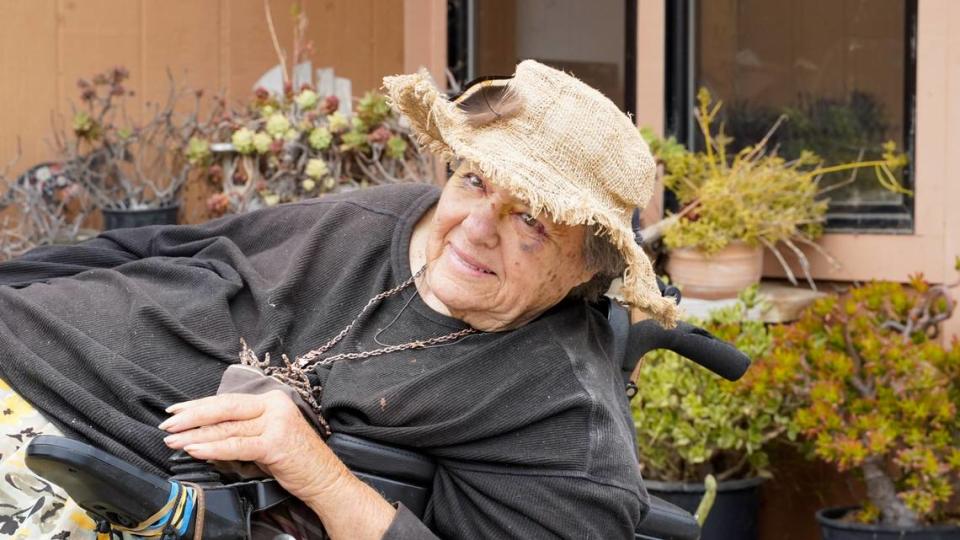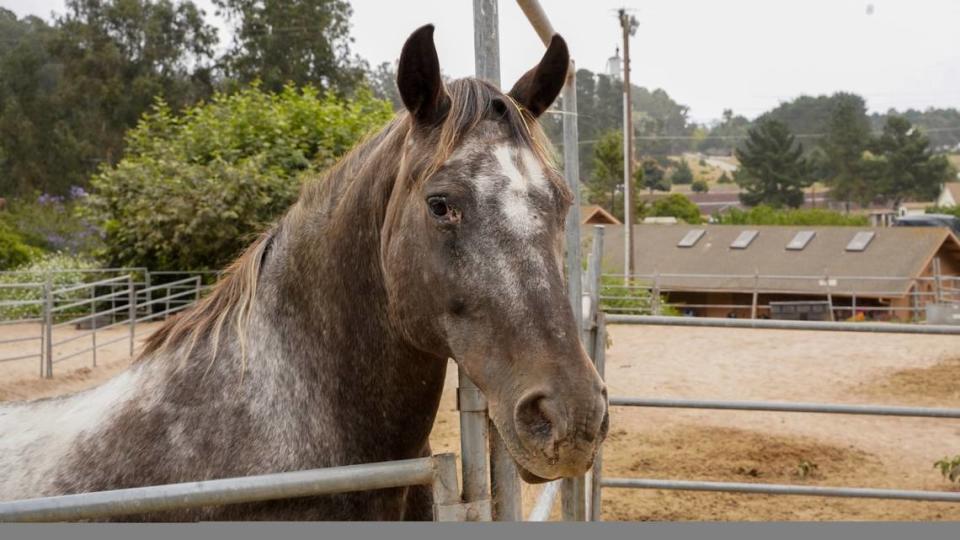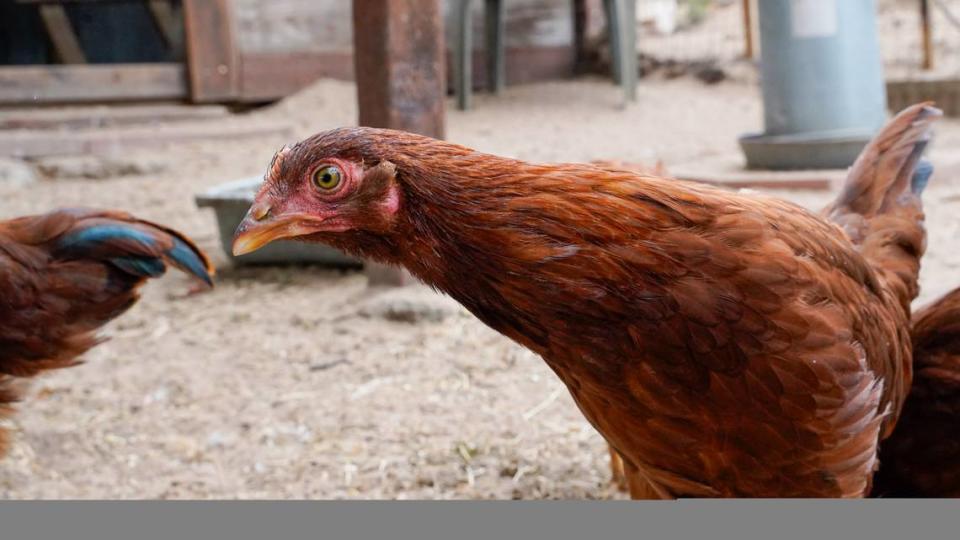SLO County nonprofit connects disabled people with therapy animals. It needs your help
At age 12, Beth Currier contracted polio and was told she would likely never walk again.
After recuperating at a Los Angeles County hospital, Currier went to her grandfather’s IIIinois ranch to continue her physical rehabilitation. That’s where she met Queenie the pony.
“My grandfather said, ‘Beth, please don’t cry,’ ” Currier said, promising his granddaughter that the horse would “become your freedom and your legs.”
In 1984, Currier started Rancho de los Animales for the Disabled in Arroyo Grande. The nonprofit organization serves clients with mental, physical and emotional disabilities by providing free therapeutic sessions with the organization’s stable of animals.
However, the future of Currier’s group is at risk after the natural well that supplies her property with drinking water dried up.
Here’s how you can help one of the South County’s oldest therapeutic programs keep its doors open.

SLO County nonprofit group’s well dries up
Currier’s nonprofit is based on eight-acre parcel of land on the Nipomo Mesa that’s also home to Currier, who lives in the main building, along with three buildings that house part of her staff, their families and other tenants.
The staffers, who are not paid, pay minimal rent to live on the property in exchange for their work, Currier said.
Ten horses, five goats, sheep, a pig, several rabbits, assorted poultry, donkeys and an alpaca also live on the property, Currier said.
Currier said holding, touching and socializing with animals can bring benefits for individuals with mental disabilities.
Horse riding, meanwhile, can help individuals with physical difficulties build strength and coordination, she said.

“Animals are appropriate for people with disabilities (because) they provide unconditional love and support,” Currier said.
“If people tell you that you can’t (do something), there’s something you can do with animals, whether it’s just holding a gentle rabbit or guinea pig,” she said.
Currier guesses that the property’s well is more than 100 years old. It may even predate all other wells on the mesa, she said.
“There’s no water going in, and there’s no waste going out,” Currier said. “We have our own septic systems, and we have our own wells here. We just recently in the past 10 years got any kind of gas lines in here.”
Rancho de los Animales’ well went dry this summer, leading the program to admit fewer clients to the facility while Currier worked to find alternate sources of water, she said.
The nonprofit is currently receiving multiple monthly shipments of potable water costing about $530 per delivery, straining its budget.
Currier said she will need to construct a new well on the property to the tune of $50,000.

How can you help Rancho de los Animales?
According to Currier, Rancho de los Animales doesn’t charge for its services — and she has no plans to change that anytime soon.
Instead, the group relies on savings from a thrift store in Arroyo Grande that brought in around $5,000 each month over three decades, as well as Currier’s inheritance and donations from guests and clients.
The nonprofit’s numerous volunteers handle everything from computer tasks and record keeping help to breaking up bread for the birds to eat, she said, working in exchange for free horseback rides.
“I’m always soliciting donations if possible,” Currier said. “However, I would rather not charge a fixed set fee, like most therapeutic programs do.”
Currier said it’s important to keep the group’s services free because most people living with disabilities are on some form of fixed income.
“Animals are appropriate for people with disabilities (because) they provide unconditional love and support,” Currier said.
“If people tell you that you can’t (do something), there’s something you can do with animals, whether it’s just holding a gentle rabbit or guinea pig,” she said.
You can help Rancho de los Animales for the Disabled by donating to the nonprofit’s GoFundMe campaign to raise money for the new well, along with three to six months of water shipments during the well’s construction.
As of Tuesday evening, the fundraiser had raised $475 toward a $50,000 goal.
To donate to the group directly, call 805-459-9083 or visit ranchodelosanimales.org.
Volunteer help is also appreciated, Currier said.

